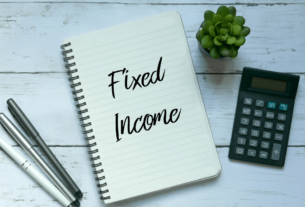In today’s financial landscape, choosing the right best investment platforms can make the difference between mediocre returns and achieving your financial goals. The best investment platforms offer more than just a place to buy and sell assets; they provide educational resources, powerful analysis tools, and competitive fee structures that can significantly impact your investment journey.
What Are the Best Investment Platforms?
The best investment platforms are digital services that allow investors to buy, sell, and manage various financial assets, including stocks, bonds, ETFs, mutual funds, and sometimes alternative investments like cryptocurrencies or real estate. These platforms serve as intermediaries between investors and the financial markets.
What sets the best investment platforms apart is their combination of user-friendly interfaces, comprehensive investment options, reasonable fee structures, educational resources, and robust security measures. They typically offer:
- Full-service brokerages: Offering comprehensive investment services and often personalized advice
- Discount brokers: Providing lower-cost trading options with fewer frills
- Robo-advisors: Using algorithms to create and manage automated investment portfolios
- Specialized platforms: Focusing on specific asset classes like cryptocurrencies

Key Benefits of Using the Best Investment Platforms
Lower Barriers to Entry
The best investment platforms have lowered minimum investment requirements, with many allowing you to start with just a few dollars. Some even offer fractional shares, enabling investors to own portions of expensive stocks with minimal capital.
Cost Efficiency
The best investment platforms have revolutionized fee structures, with many eliminating commission fees for standard stock trades. This cost reduction means more of your money goes toward actual investments rather than transaction costs.
Diversification Opportunities
Modern best investment platforms provide access to thousands of investment options across multiple asset classes and global markets, making it easier to build a well-diversified portfolio.
Educational Resources
The best investment platforms offer extensive educational content, including articles, videos, webinars, and interactive tools that help investors understand market dynamics and investment strategies.
Advanced Analytics and Research
Many of the best investment platforms provide sophisticated research tools and analytical capabilities that were once available only to professional investors.
Automation Features
From @automatic rebalancing to recurring investments and dividend reinvestment programs, the best investment platforms offer automation features that simplify portfolio management.
How to Choose the Best Investment Platforms for Your Needs
Selecting from among the best investment platforms requires careful consideration of your specific financial situation, goals, and preferences. X Here’s a guide to help you:
1. Define Your Investment Goals
Before evaluating the best investment platforms, clarify what you’re trying to achieve. Are you saving for retirement, a home purchase, or education expenses? What’s your time horizon and risk tolerance?
2. Assess Your Investment Style
Consider your preferred approach to investing. Do you want to actively select individual investments or prefer a more hands-off approach? How frequently do you plan to trade?
3. Evaluate Fee Structures
The best investment platforms offer transparent fee disclosures. Look for trading commissions, account maintenance fees, expense ratios for funds, and advisory fees. Even small fee differences can significantly impact your returns over time.
4. Consider Available Investment Options
The best investment platforms should offer the investment vehicles you’re interested in, whether that’s stocks, bonds, ETFs, mutual funds, options, futures, forex, cryptocurrencies, or ESG investments.
5. Assess Platform Usability and Tools
Test the user interface, evaluate mobile app functionality, check for essential tools like portfolio analyzers and screeners, and assess research quality and educational resources.
6. Check Security Features
Look for two-factor authentication, SIPC membership, additional insurance beyond SIPC limits, and review the platform’s security protocols.
see you might like:Best Investment Platforms: The Ultimate Guide for Smart Investors in 2025
Advanced Strategies for Maximizing Returns on the Best Investment Platforms
Dollar-Cost Averaging
Set up automatic recurring investments on your chosen platform to invest a fixed amount regularly regardless of market conditions.
Tax-Efficient Investing
Utilize tax-advantaged accounts like IRAs, 401(k)s, and HSAs strategically based on your tax situation and investment timeline.
Portfolio Rebalancing
Use tools provided by the best investment platforms to monitor your allocation and facilitate regular rebalancing to maintain your desired asset mix.
Leveraging Research and Analysis
Take advantage of the research, screening tools, and educational resources provided by the best investment platforms to identify investment opportunities aligned with your strategy.
Integrating External Financial Accounts
Use account aggregation features to connect external accounts for a holistic view of your finances and make more informed investment decisions.
The Future of Investment Platforms
The best investment platforms continue to evolve with several emerging trends:
AI and Machine Learning Integration
Increasing incorporation of artificial intelligence to provide personalized investment recommendations, risk assessments, and market insights.
Expansion of Alternative Investments
Access to alternative investments like private equity, venture capital, real estate, and digital assets is expanding, allowing retail investors to diversify into previously inaccessible asset classes.
Enhanced Social and Community Features
Social investing features, including community forums and copy trading, are becoming common among the best investment platforms.
Hyper-Personalization
The best investment platforms are moving toward hyper-personalized experiences that consider not just your financial goals but also your values and preferences.
Integration with Broader Financial Ecosystems
Many of the best investment platforms are expanding to become comprehensive financial hubs, offering banking services, financial planning tools, and more.

Conclusion
Choosing from among the best investment platforms is a crucial decision that can significantly impact your financial future. By carefully assessing your goals, investment style, and specific needs, you can select a platform that aligns with your investment journey. X
With the right platform as your foundation, you’ll be well-positioned to build a diversified portfolio, make informed investment decisions, and work toward your long-term financial goals. The best investment platforms serve not just as gateways to the market but as partners in your financial journey.
Frequently Asked Questions About the Best Investment Platforms
What minimum amount do I need to start using the best investment platforms?
The minimum investment required varies widely. Some platforms allow you to start with as little as $1, while others may require minimum initial deposits ranging from $500 to $10,000, particularly for managed accounts.
How secure are the best investment platforms?
The best investment platforms employ bank-level security measures, including encryption and two-factor authentication. Most regulated platforms in the U.S. provide SIPC protection covering up to $500,000 in securities and cash per account.
Can I transfer my existing investments to one of the best investment platforms?
Yes, most of the best investment platforms facilitate transfers of existing investments through ACAT processes. Many platforms even cover transfer fees from your previous broker.
What fees do the best investment platforms typically charge?
Common fees include trading commissions, expense ratios for funds, advisory fees for managed accounts (typically 0.25% to 1% annually), and potential account maintenance fees.
Do the best investment platforms offer retirement accounts?
Yes, virtually all of the best investment platforms offer tax-advantaged retirement accounts, including Traditional IRAs, Roth IRAs, and often Solo 401(k)s for self-employed individuals.
Can beginners easily use the best investment platforms?
The best investment platforms increasingly cater to beginners with intuitive interfaces, extensive educational resources, and simplified investment options like all-in-one ETFs or robo-advisory services.




